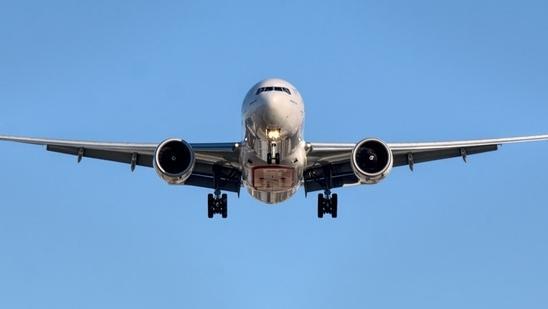
Over 7,000 flights used Surat airspace during Indo-Pak clash
The recent tensions between India and Pakistan led to the closure of Pakistan’s airspace, resulting in a significant increase in air traffic through the Surat airspace. According to reports, over 7,000 flights used Surat’s airspace during this period, causing a major logistical challenge for the airport authorities.
The Surat Airport Director, Anand Narayan Sharma, revealed that the airport played a crucial role in managing the increased air traffic. “All the west-bound flights were passing through Surat’s airspace…I am happy to say that with the existing manpower, we could manage this. There was no flight disruption,” Sharma said.
The airport authorities worked tirelessly to ensure a smooth operation, with a 24-hour operation being put in place to deal with the increased traffic. Sharma added, “This 24-hour operation will continue.” The airport’s efforts were praised by the aviation industry, with many experts hailing the airport’s professionalism and efficiency in managing the crisis.
The closure of Pakistan’s airspace was a result of the escalating tensions between India and Pakistan over the past few weeks. The tensions began after a suicide bombing in Kashmir that killed over 40 Indian security personnel. Pakistan-based terrorist organization Jaish-e-Mohammed claimed responsibility for the attack, leading to a massive retaliatory operation by the Indian Air Force.
In response, Pakistan closed its airspace, stranding thousands of passengers and disrupting international air travel. The closure also had a significant impact on the economy, with many flights being diverted to other airports.
The Surat airport, which is located in the western state of Gujarat, played a crucial role in managing the increased air traffic. The airport’s proximity to the western border and its existing infrastructure made it an ideal location for flights to be diverted.
The airport’s authorities worked closely with the Indian Air Force and other stakeholders to ensure a smooth operation. The airport’s management team was on high alert, with a team of experts working around the clock to monitor the situation and make necessary arrangements.
The airport’s efforts were praised by passengers who were forced to take alternative routes. “I was supposed to fly to London, but due to the closure of Pakistan’s airspace, my flight was diverted to Surat. The airport staff was very helpful and ensured that I reached my destination safely,” said a passenger who was affected by the diversion.
The Surat airport’s role in managing the increased air traffic during the Indo-Pak clash is a testament to the airport’s professionalism and efficiency. The airport’s authorities worked tirelessly to ensure a smooth operation, with no flight disruptions reported during the period.
The airport’s success is a result of the hard work and dedication of the airport staff, who worked around the clock to ensure that passengers reached their destinations safely. The airport’s efforts were praised by the aviation industry, with many experts hailing the airport’s professionalism and efficiency in managing the crisis.
In conclusion, the Surat airport played a crucial role in managing the increased air traffic during the Indo-Pak clash. The airport’s authorities worked tirelessly to ensure a smooth operation, with no flight disruptions reported during the period. The airport’s success is a testament to the airport’s professionalism and efficiency, and its role in managing the crisis is a shining example of the airport’s capabilities.






